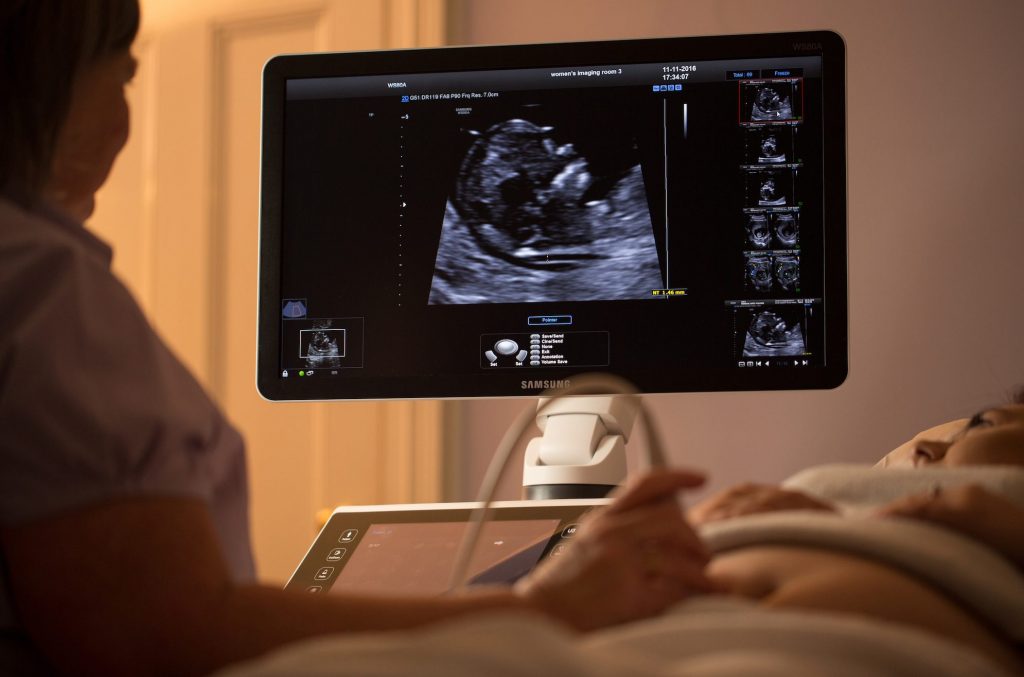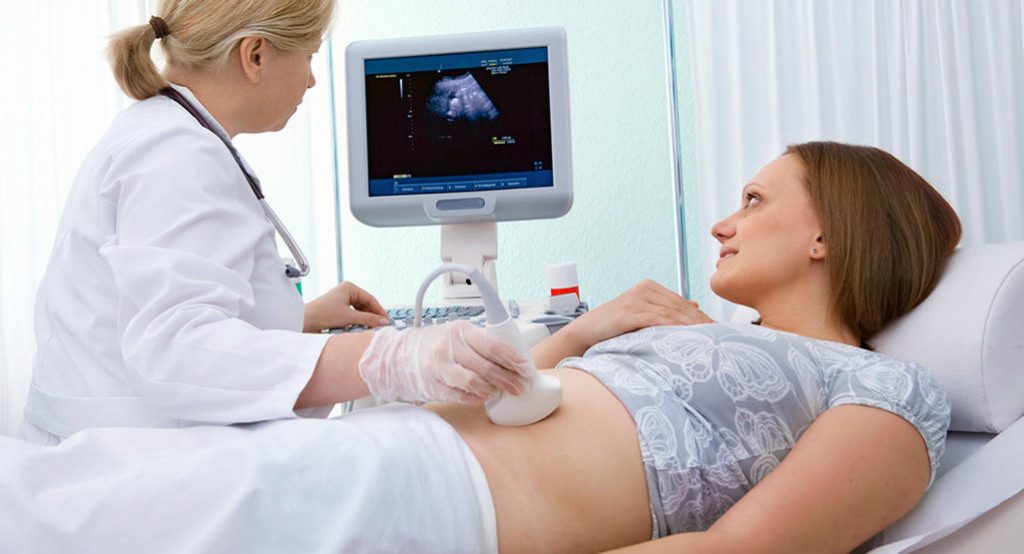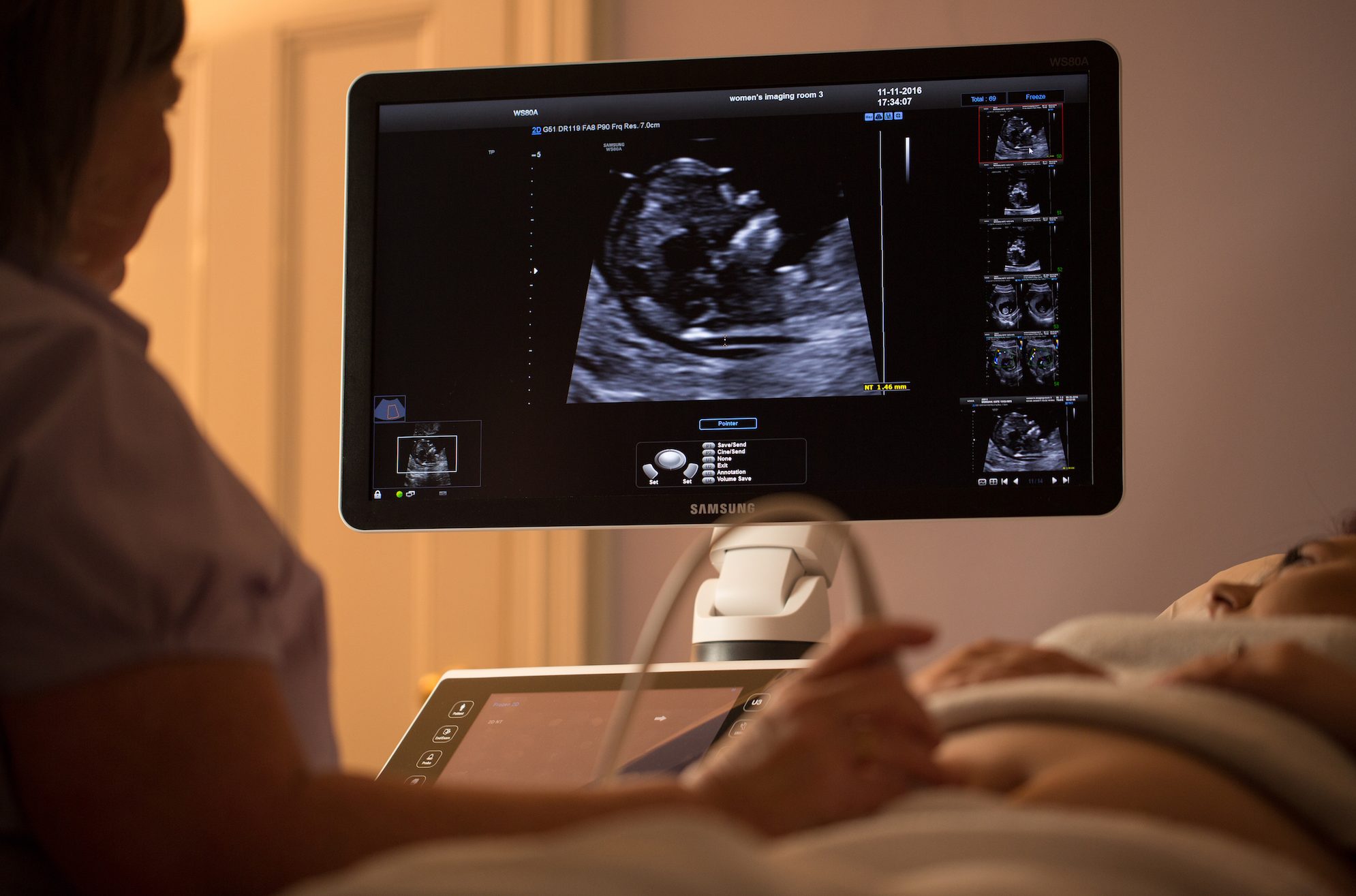Late period? Check! Nausea? Check! The constant need to urinate? Check! A whole rollercoaster of emotions? Check! And finally, a positive pregnancy test! Well, congratulations, you are going to be a mom soon, and it’s normal to wonder when do you have your first ultrasound.
I’m already guessing that you are probably feeling scared and anxious about the word “ultrasound” and want to know everything about it. Don’t worry; as a gynecologist myself, I will answer all your questions regarding pregnancy scans and when is the ideal time to schedule one.
Ultrasounds are a normal part of the pregnancy journey that every future mom will experience, and they are completely harmless. Also, it’s recommended to have at least one ultrasound during your pregnancy.

When Do You Have Your First Ultrasound?
Many new moms are wondering when they will have their first ultrasound. The best time when the first ultrasound needs to be done depends significantly on the need for which it is performed. Regarding safety, I advise most future moms to perform an ultrasound around 7 to 8 weeks, as this is the ideal time period for detecting any fetal anomaly.
However, this might not be the same for all the pregnant women out there since it can largely depend on multiple factors throughout the pregnancy.
The First Ultrasound
The importance of the first ultrasound
The first pregnancy scan is usually transvaginal or internal, and the most important one since it can verify whether the fetus is developing as expected and evaluate the overall health of the fetus to detect any early pregnancy complications like miscarriage or ectopic pregnancy.
The earliest pregnancy scan can be done at just 6 weeks; however, at this stage, you won’t be able to see much of the baby since it’s still too small. The doctor will only be able to confirm the pregnancy, measure the gestational sac and confirm whether it’s alive and if there is a heartbeat.
Most of the time, during the first pregnancy scan, the doctor can verify the due date, whether you are having a single pregnancy or multiple, and identify the size of the embryo.
Early dating scan – Do I need one?
Okay, so you’ve got a positive pregnancy test; congratulations. So now you are probably thinking, when do you have your first ultrasound? The answer to this question is different for every person depending on various circumstances.
As an expert, I can tell that I don’t recommend early-date scans if there isn’t any particular concern, like heavy bleeding or if you have suffered miscarriages in the past. In this case, it’s important to have an ultrasound as fast as possible to determine whether there is any necessary intervention to prevent major complications and ensure the further health of your baby.
Otherwise, after the positive test, I suggest my patients schedule an ultrasound only after 7 weeks.
Read more: How Accurate Are Conception Dates

What to expect from the first ultrasound
Listen to your baby’s heartbeat
One of the most heartwarming moments for every mom is the opportunity to listen to their baby’s heartbeat. Using an ultrasound transducer, the doctor will confirm that the baby is alive.
Are you pregnant with one child or more
Most of the time, during the early stage, the doctor can verify how many embryos there are and whether you are carrying one child, twins, or more.
Baby’s size and development
The doctor will determine whether the embryo implants are in the uterus or outside. If they are outside, this will indicate ectopic pregnancy and the exact place where the baby is, whether it is lower or higher in the uterus.
During the first trimester, the doctor can measure the baby’s size from crown to rump and estimate the baby’s size at birth.
Baby’s sex
Even though the first trimester is still too early, in certain cases, the doctor can determine the baby’s sex in about 16 weeks if the baby is in a favorable position. Otherwise, it might take longer if the baby doesn’t like to move, is sitting in a particular position, or has its legs crossed.
However, if you don’t want to find out about your baby’s genitalia, you should inform them on time or give the information to someone who is your relative.
Determine the due date
By measuring your baby’s length between the 6th and 8th week, the doctor will also be able to determine the type of childbirth you will most probably have and estimate the due date. However, if you had an irregular menstrual cycle, then it might be hard for the doctor to pinpoint the exact date, so in this case, it would be more accurate to make an additional ultrasound check after 12 weeks.
Also read: What Happens if You Don’t Take Prenatal Vitamins While Pregnant?
Preparing for the first ultrasound
First, I want to tell you that feeling anxious and nervous when taking your first ultrasound is completely normal, and I always say this to my mom-to-be patients when they come into my office. If the preparation for it is adding to your nervousness, I will share some useful things you’ll need to know so you won’t come unprepared.
The first ultrasound doesn’t require too much on the part of the mother. Usually, you’ll be required to have a full bladder, and depending on what stage you are on, sometimes you’ll need to eat something sugary to make the baby move more.
Then you’ll need to change into a hospital gown so the doctor will perform a transabdominal and transvaginal scan; don’t worry, since both are completely safe.
The transabdominal ultrasound is done by making a scan over your abdomen on a full bladder, while for the transvaginal, you’ll need to empty your bladder as it includes inserting a small transducer into the vagina.








